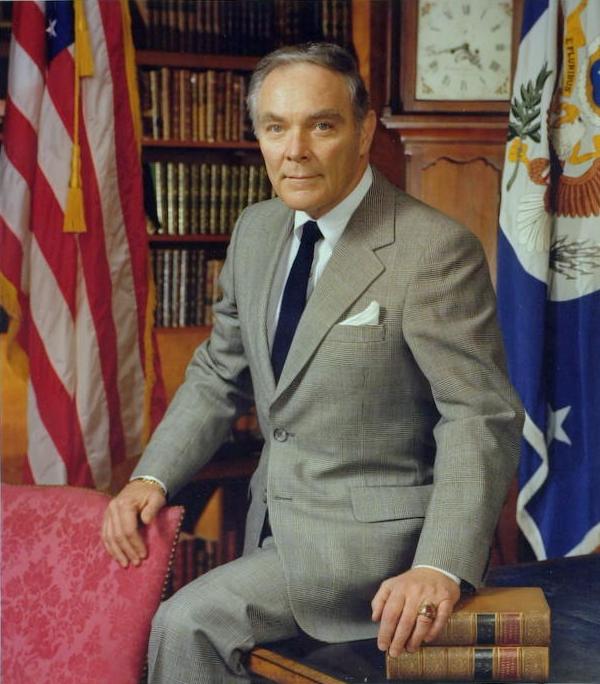Alexander Haig
American Secretary of State Alexander (Al) Haig, was in charge of the negotiations known as the ‘peace shuttle’ which took place in a bid to prevent the 1982 Falklands War. He was applauded for his efforts, but they proved futile.
Just before the 1982 Falklands War began, American Secretary of State Alexander (Al) Haig was charged with leading the ‘peace shuttle’ negotiations. He travelled across the globe – hence the ‘shuttle’ term his negotiations were given, in a bid to gain peace, attempting to support Margaret Thatcher’s Britain as well as keeping an American influence in South America. As Thatcher was a close friend of American President Ronald Reagan, Haig was concerned that the South Americans may view him as supporting Britain’s ‘deemed imperialistic intentions,’ and was eager not to undermine the American position.

Born in Philadelphia in 1924, Haig was schooled at West Point Military Academy and Georgetown University before entering the US Army in 1947. He was promoted quickly within the Army, being made brigadier-general in 1969 and then major general in 1972. He commanded a brigade in the Vietnam War between 1966 and 1967 and was appointed West Point’s deputy commandant and military advisor to President Richard Nixon between 1969 and 1973. Haig was also commander-in-chief of American forces in Europe between 1974 and 1979, as well as becoming NATO’s Supreme Commander.
He turned to politics and excelled in this area too. In early 1981, he was appointed as Secretary of State by President Ronald Reagan and became deeply involved in the negotiations to try and stave off the Falklands War. However, he was not successful in this bid, though his work was applauded. Haig handed his resignation into the Government in June of 1982, following the realisation that his American foreign affairs beliefs were at odds with those of President Reagan.
MLA Citation/Reference
"Alexander Haig". HistoryLearning.com. 2026. Web.
